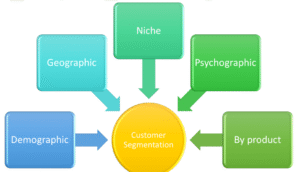Social Selling: The Subtle Art of Relationship-Based Marketing

In a marketplace saturated with advertisements and promotional content, social selling has emerged as the differentiator between brands that merely survive and those that genuinely thrive. Unlike traditional selling methods that push products aggressively, social selling operates on a fundamentally different philosophy: establishing authentic connections before commercial transactions. At BrandsDad, we’ve witnessed firsthand how relationship-centered approaches consistently outperform conventional sales techniques.
Beyond the Transaction: Understanding Social Selling
Social selling isn’t simply using social media platforms to advertise products—it represents a fundamental shift in how businesses approach customer relationships. This methodology prioritizes providing value, demonstrating expertise, and building trust long before introducing any sales conversation. The approach acknowledges an essential truth about human psychology: people prefer buying from individuals and brands they know, like, and trust.
Rather than focusing exclusively on closing deals, social selling practitioners invest in relationship cultivation. They engage thoughtfully with their audience’s content, participate meaningfully in discussions, and consistently deliver value without immediate expectations of return. These seemingly small interactions accumulate into substantial relationship capital that eventually translates into business opportunities.
The Trust Economy and Its Impact
We now operate within what some marketing experts call the “trust economy”—an environment where consumer trust has become the scarcest and most valuable resource. According to research from Edelman’s Trust Barometer, nearly 70% of consumers actively avoid advertisements while simultaneously seeking authentic brand connections. This paradox creates the perfect conditions for social selling to thrive.
Trust development follows predictable psychological patterns. Consumers typically require multiple positive interactions before considering a purchase—particularly for significant investments. Social selling strategically creates these positive touchpoints through consistent, value-focused engagement rather than interruptive promotional messaging.
Content as Relationship Currency
Thoughtfully created content serves as the primary vehicle for social selling success. When businesses consistently share genuinely helpful resources, insightful perspectives, and solution-oriented information, they demonstrate both expertise and authentic concern for audience challenges. This content-driven approach establishes what sociologists call “parasocial relationships”—connections where audience members develop trust toward creators despite limited direct interaction.
The most effective social selling content addresses specific audience pain points, provides actionable insights, and maintains consistent voice and values. Content that merely promotes products rarely generates meaningful relationship development. Instead, successful practitioners create resources that would remain valuable even if the audience never purchases anything.
Listening as Competitive Advantage
The most overlooked aspect of effective social selling involves developing sophisticated listening capabilities. Before meaningful relationships can form, businesses must deeply understand audience concerns, aspirations, language patterns, and contextual realities. This requires systematic monitoring of conversations, comments, questions, and broader industry discussions.
Digital listening transcends traditional market research by capturing authentic, unprompted perspectives rather than directed responses. When businesses demonstrate they’ve truly heard and understood audience concerns before attempting to address them, they create powerful psychological affinity. Research from LinkedIn’s State of Sales Report indicates that sales professionals who excel at social listening techniques convert prospects at rates 45% higher than counterparts focused primarily on outbound messaging.
The Relationship Cultivation Framework
Successful social selling follows recognizable relationship development patterns that mirror human friendship formation. These typically include:
The awareness phase, where potential customers first encounter your expertise through content or comments.
The connection phase, involving initial direct interactions that establish basic familiarity.
The relevance phase, where consistent value provision demonstrates understanding of specific needs.
The trust phase, characterized by reliable presence and consistent demonstration of values.
The advocacy phase, where relationships mature into collaborative partnerships and referral sources.
This progression cannot be artificially accelerated without compromising authenticity. Just as personal friendships require time and consistent positive interactions, business relationships through social selling require patient cultivation.
Implementing Social Selling Strategically
Effective implementation requires reorganizing traditional sales approaches. Rather than separating marketing and sales functions, successful social selling integrates these disciplines through consistent messaging, shared relationship ownership, and unified customer experience management. The most successful practitioners typically integrate several foundational elements:
Comprehensive social listening systems that capture relevant conversations across platforms. Relationship management processes that track meaningful interactions over time. Value-centered content strategies addressing specific audience challenges. Engagement protocols emphasizing genuine conversation rather than promotion. Measurement frameworks that value relationship development alongside traditional conversion metrics.
Measuring What Matters
Traditional sales metrics focusing exclusively on short-term conversions often undervalue social selling’s relationship-building power. Sophisticated practitioners develop balanced measurement approaches that consider both relationship development indicators and traditional sales outcomes.
Meaningful metrics include engagement quality (not merely quantity), conversation depth, content utilization patterns, relationship progression markers, and ultimately, conversion rate improvements over time. Particularly valuable are indicators showing audience members independently advocating for your expertise—perhaps the strongest signal of successful relationship development.
The Future of Connection-Based Commerce
As digital spaces become increasingly crowded, relationship differentiation will only grow more valuable. Businesses that master authentic connection development will maintain sustainable competitive advantages that cannot be easily replicated through technological or pricing strategies alone. The future belongs to organizations that understand that in an age of algorithmic filtering and information overload, human connection remains the ultimate differentiator.
At BrandsDad, we’ve consistently found that businesses embracing relationship-centered approaches outperform competitors focused solely on transactional interactions. The most successful organizations recognize that social selling isn’t merely another tactical approach—it represents fundamental realignment around relationship value as the primary business asset.
The businesses that thrive tomorrow will be those that authentically connect today. Social selling doesn’t merely represent a new channel for sales activities; it embodies a fundamentally different philosophy about how businesses create sustainable value through relationship cultivation.







